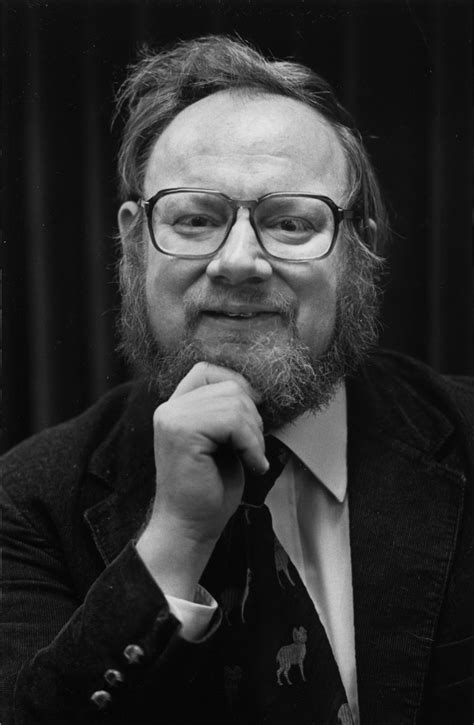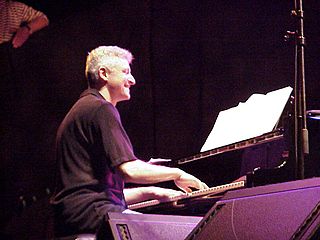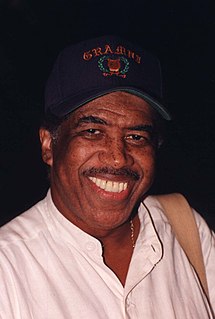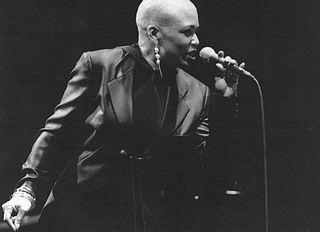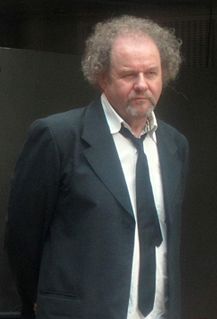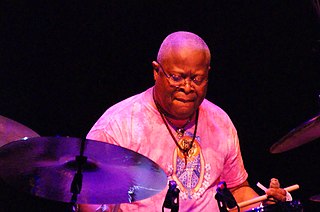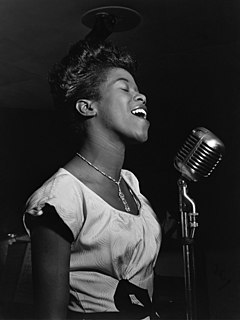A Quote by John Eaton
The way that I got involved with microtonal music was, frankly, through jazz.
Related Quotes
The hardest thing about being a young musician on the jazz scene is that there are so many styles of music, jazz and otherwise, that you're exposed to. The challenge is to use all that in your own way, to personalize all that has come before you and all that is happening around you. To get the music the way you want it, there's a lot of work involved.
In New York, I was excited about the music in New York because the only music that I was more or less involved with in the South was either country and western or hillbilly music as we used to call it when I was a kid and, ah, gospel. There was no, there was no in between. And when I got to New York all the other musics that's in the world just came into my head whether it was the classics, jazz, I never knew what jazz was about all, had heard anything about jazz.
Truth of the matter is, jazz is American music. And that doesn't mean bebop. Jazz is really about improvising. All the music that's been created in America has been pretty much improvised... Whether it's hillbilly or rock n' roll for blues, it's basically jazz music... It's basically about another way of hearing what comes out of America.
I don't know why people call me a jazz singer, though I guess people associate me with jazz because I was raised in it, from way back. I'm not putting jazz down, but I'm not a jazz singer...I've recorded all kinds of music, but (to them) I'm either a jazz singer or a blues singer. I can't sing a blues – just a right-out blues – but I can put the blues in whatever I sing. I might sing 'Send In the Clowns' and I might stick a little bluesy part in it, or any song. What I want to do, music-wise, is all kinds of music that I like, and I like all kinds of music.
Of course we've lost so many superstars who've made jazz what it is. We've lost so many musicians who created new things and changed the way we think about music and who took jazz to a new level. So jazz is suffering from that. But we still have a lot of incredible people playing jazz in the world. We have a lot of people leading the way.
For me, let's keep jazz as folk music. Let's not make jazz classical music. Let's keep it as street music, as people's everyday-life music. Let's see jazz musicians continue to use the materials, the tools, the spirit of the actual time that they're living in, as what they build their lives as musicians around.
I grew up in a home filled with music and had an early appreciation of jazz since my dad was a jazz musician. Beginning at around age three I started singing with his band and jazz music has continued to be one of my three passions along with acting and writing. I like to say jazz music is my musical equivalent of comfort food. It's always where I go back to when I want to feel grounded.
I have always loved jazz music and as a teen growing up in New York City and then later on as an adult have great memories of the jazz clubs that were all located on 52nd Street. I still catch as many jazz shows as I can when I am in New York. And when I perform, I have my jazz quartet by my side. Jazz musicians keep things spontaneous and very "live," which is the way I like to perform.
